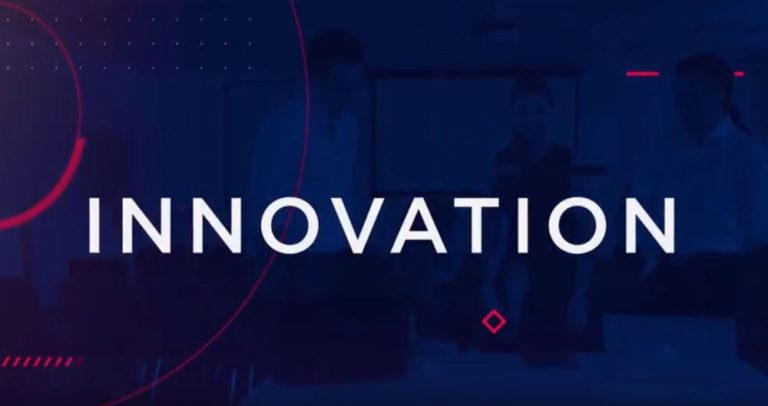[vc_row][vc_column][vc_column_text]
Introduction: clinical trials in Australia
Technology is significantly transforming the clinical trials landscape, as businesses in the life sciences recognise the benefit of leveraging new technologies that improve clinical data quality and reduce the overall trial timeline.
A 2017 report from the Australian New Zealand Clinical Trial registry revealed that Australia ranks in the top tier of national clinical trial activity, estimated to be worth around $1 billion to the Australian economy.[1]
Indeed if Australia is to cement its expertise in the Asia-Pacific region, and continue to prove itself a popular destination for early phase studies, it must ensure that clinical trials are intertwined with technology that enables more efficient trials and smarter drug development.
As clinical trials in Australia already enjoy myriad domestic advantages, including a diverse population as well as strong government support and incentives, harnessing new technologies and big data will ensure these circumstances are long-lived.
Beyond the new technologies enabling the clinical trials sector, there are other important trends at play.
Globally, collaboration in life sciences is allowing businesses to solve problems that are too large and complex in nature for single companies to solve alone. The combination therapies that will result are expected to become extremely powerful.
Recruitment into clinical trials remains a challenge for the sector, however, the disruptive technologies currently being embraced will allow for more personalised solutions that improve the patient experience.
Technology and clinical trials
Exactly how technology is improving clinical trials and enabling a higher standard of healthcare is in part, through its ability to make sense of the growing volumes of data being produced every day.
The clinical trials process involves having to accommodate an incredible variety of data and content from various sources; from traditional clinical data, to real world data, to high-resolution images and so on.
Embracing technologies that are able to capture and utilise these large data sets assists in managing the growing complexities of clinical trials, namely the standardisation, reconciliation and integrity of data.
The role of intelligent clinical solutions must also be acknowledged, which utilise new technologies such as artificial intelligence and machine learning to analyse and detect anomalies in data.
An example of these nascent capabilities includes the identification of novel biomarkers for Castleman disease by Medidata and the Castleman Disease Collaborative Network (CDCN).
The discoveries provided novel insights into treatment response and potential new drug targets, demonstrating the benefit of harnessing data for smarter drug development.
Likewise is the recent launch of Medidata’s AI-as-a-Service outfit, Acorn AI, which leverages the business’ standardised clinical data storehouse and AI capabilities to personalise and optimise clinical trials, and support decision making.
It is disruptive technologies like these that businesses in the life sciences must continue to embrace in order to drive meaningful transformation and add value for clinical trials, the patients involved and the entire healthcare system.
What’s ahead for clinical trials in Australia
According to Deloitte’s 2019 Global Life Sciences outlook report, life science businesses that adopt digital technologies and platforms will benefit from stronger engagement with patients, deeper insights from clinical trials and a shorter clinical trial timeline.
However, to ensure we’re realising the full potential of disruptive technologies in life sciences, regulation must become more agile and evolve to foster innovation.
Similarly, an interoperable system that facilitates information sharing will ensure Australia is making the most of big data and analytics. Data sharing through modern platforms such as wearables and social media supports greater engagement and understanding of patients who are participating in clinical trials.
These developments redefine the role of trial participants – from subjects to collaborators – enhancing their overall experience and helping to overcome challenges associated with recruitment into clinical trials.
Beyond digital transformation, collaboration across life sciences will also play an integral role. In 2019, collaborative approaches will be key for working with patients and regulators, advancing drug development and the Internet of Medical Things.[2]
Big data-driven insights will transform patient care and enhance the productivity of trials.
As Australia looks to establish itself as a popular destination for early phase studies, the future of the Australian clinical trials sector must be intertwined with technology.
[1] http://www.health.gov.au/internet/main/publishing.nsf/Content/Clinical-Trials [2] https://www2.deloitte.com/global/en/pages/life-sciences-and-healthcare/articles/global-life-sciences-sector-outlook.html
[/vc_column_text][vc_zigzag][vc_row_inner][vc_column_inner width=”1/4″][vc_single_image image=”3107″ img_size=”full”][/vc_column_inner][vc_column_inner width=”3/4″][vc_column_text]
ABOUT THE AUTHOR
Andrew Gebbie, Principle Solution Consultant, Medidata Solutions APeJ[/vc_column_text][/vc_column_inner][/vc_row_inner][/vc_column][/vc_row]



